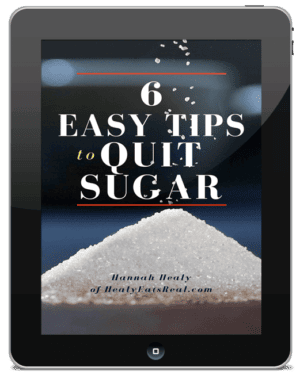5 SCARY Effects of Sugar on Your Health
This post may contain affiliate links. As an Amazon Associate I earn from qualifying purchases. Please read the disclosure policy.
Many people know that too much sugar is bad. But do you really know the details of the effects of sugar on the brain and body? You may be surprised to see what sweeteners really do to you…
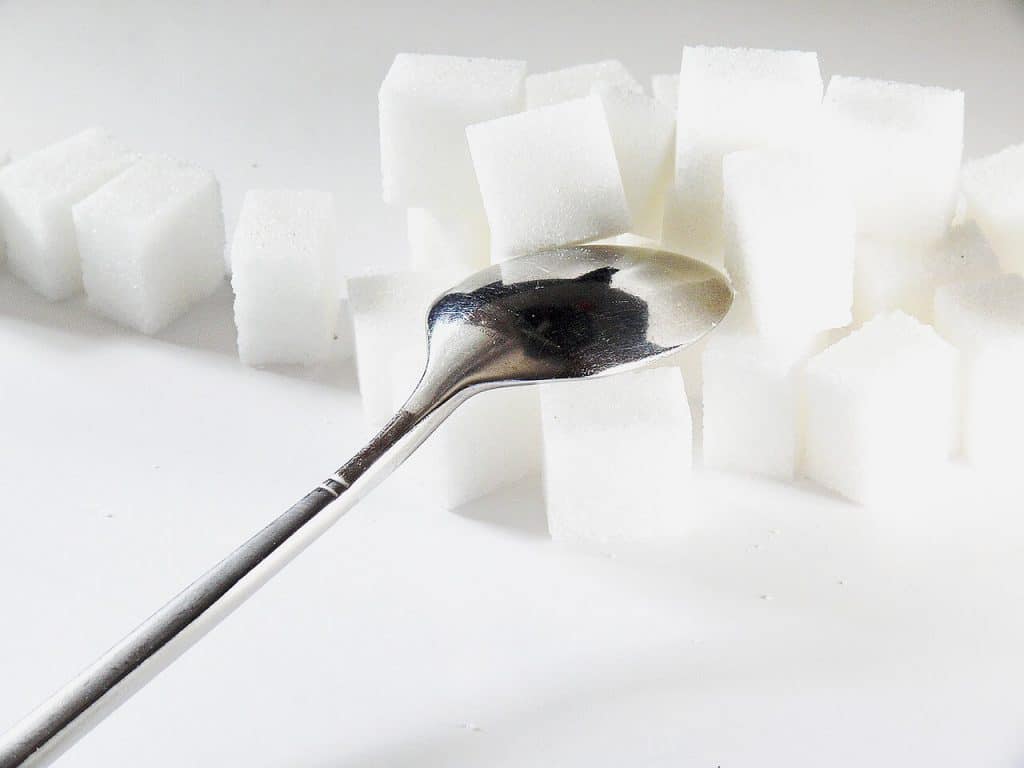
You start off your day with a cup of coffee and 2 teaspoons of sugar. You eat a chocolate muffin, which contains 8 more teaspoons of sugar. At lunch you add a store bought tomato sauce, which contains 4 teaspoons of sugar. For a snack, you eat two chocolate chip cookies, which contain twelve more teaspoons of sugar. For dinner, you opt for something light and eat a fruity yogurt, which contains 6 teaspoons of sugar. In one day, you consume 32 teaspoons of sugar, which adds up to 160 grams of sugar in one day alone.
Now imagine that you eat like this every day for 365 days. In one year, you will have consumed almost 130 pounds of sugar, which will have provided you with 233,600 calories. Although most of us recognize that sugar is a main contributor to weight gain, the dangerous effects of sugar lie much deeper than just excess body fat.
5 Effects of Sugar on Your Health:
1. Sugar Affects Your Memory & Increases Your Appetite
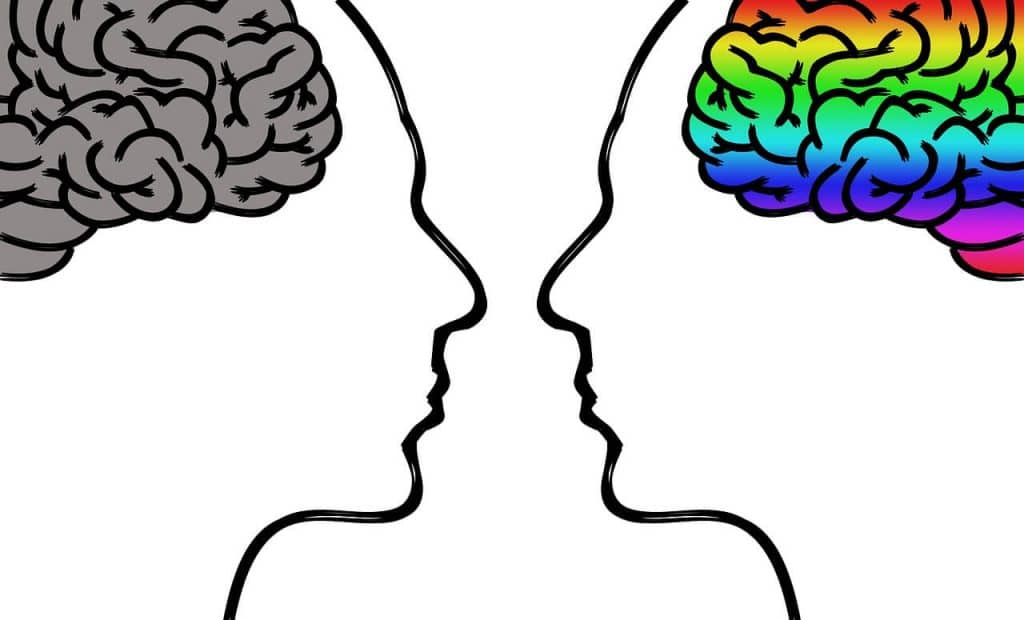
Believe it or not, the sugar we eat affects the hippocampus of the brain, which is responsible for our short-term memory as well as our responsiveness to internal hunger and satiety cues. Human and animal studies have shown that the higher intake of sugar in the diet decreases hippocampal memory and reduces sensitivity to signals of hunger and satiety.
In other words, people who eat more sugar are more likely to eat more before they feel satisfied (1,2). Other studies have shown an increased level of cognitive decline in people who derived a higher percentage of calories from simple sugars (3).
2. Sugar Overloads Your Liver
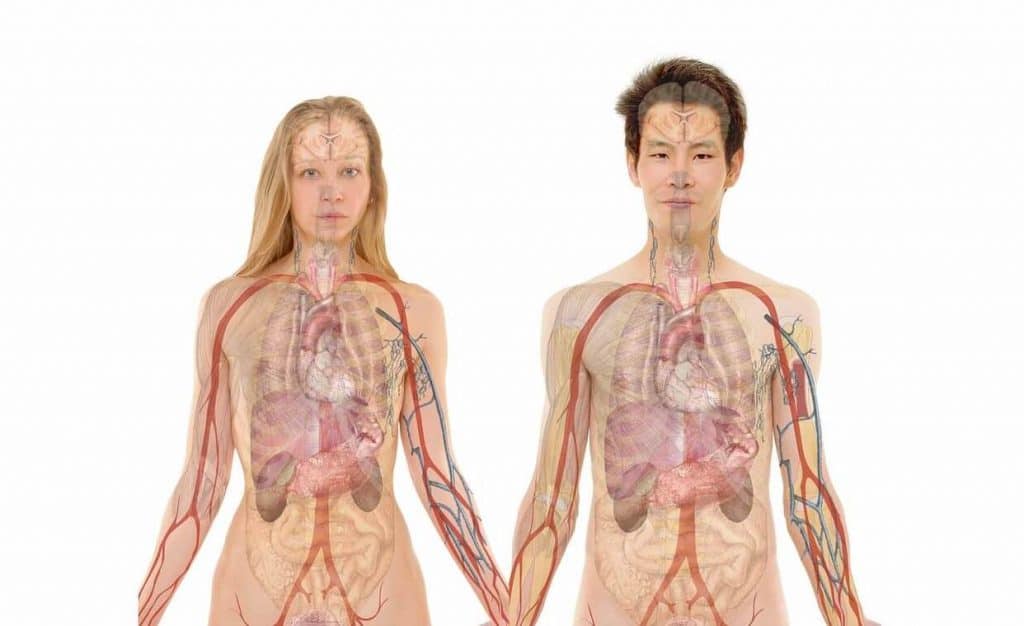
The liver is an organ that has many responsibilities within the body. One of its main functions is to detoxify the body from dangerous toxins, including drugs and other harmful substances. It basically acts as the body’s filter. When one has non-alcoholic fatty liver, the process is disrupted and over a long period of time, this condition can have repercussions on one’s health.
Fatty liver disease is caused by the accumulation of triglycerides within the liver. Therefore, the good news is that fatty liver disease can be reversed with diet. One of the biggest causes of high triglyceride levels and fatty liver is, you guessed it, sugar (4,5).
It seems obvious that avoiding a high level of processed sugar within your daily routine will definitely make your liver happy and allow it to work optimally to remove toxins from your body.
3. Sugar Stresses You Out

The adrenal glands, small walnut-shaped organs that sit above the kidneys, produce the stress hormones cortisol, epinephrine and norephinephrine. Under normal conditions, all of these hormones are needed to keep the body in balance. However, when the body is continuously under stress, as is the case with most of us in a fast-paced lifestyle, high or altered levels of these hormones can cause disease. This is usually what causes Adrenal Fatigue.
Cortisol, for example, is responsible for balancing blood glucose levels. If you go many hours without eating, cortisol creates glucose in order to keep a steady supply within the blood at all times. (Otherwise, you would feel weak, dizzy and have a hard time concentrating).
However, if you are stressed out most of the day, increased cortisol levels lead to the storage of glucose as fat, especially in the abdominal area.
How does sugar add to the vicious cycle of stress?
Being consistently stressed out puts your body in a state of panic. It constantly asks for more immediate sources of energy in order to cope. What is the fastest source of energy? It’s sugar.
This is why you get more cravings for fast carbs such as pizza or ice cream when you feel stressed out. Your body simply wants to make sure it has enough energy to deal with the danger of stress.
The problem here is that if you always choose high-sugar foods and do not eat nutrient-dense foods during times of stress, your metabolism shuts down and does not work sufficiently. What does this mean? Inevitable weight gain.
4. Sugar Makes You Sick More Often
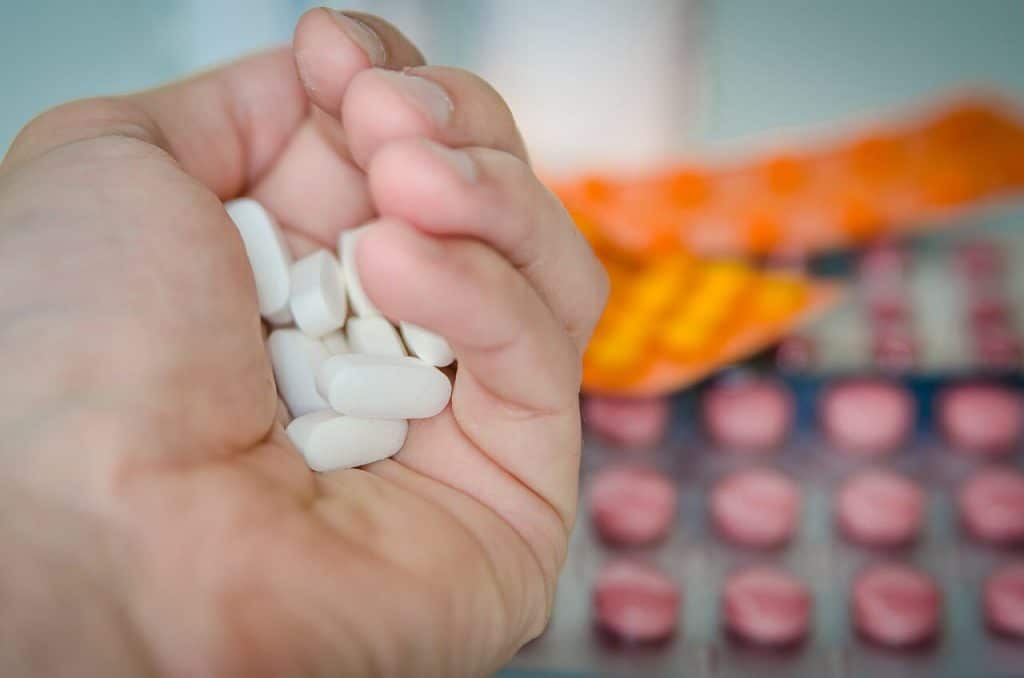
Do you feel that you are susceptible to getting sick often and it takes you a while to shake the cold or flu you get? That’s because sugar suppresses immune system function.
Research shows that higher amounts of sugar can decrease the activity of the phagocytes of the immune system (cells of the immune system that fight off inflammation), by up to 40 percent!
In other words, the more sugar you eat daily, the weaker your immune system gets and the more susceptible you are to getting sick (6).
5. Sugar Causes Disease
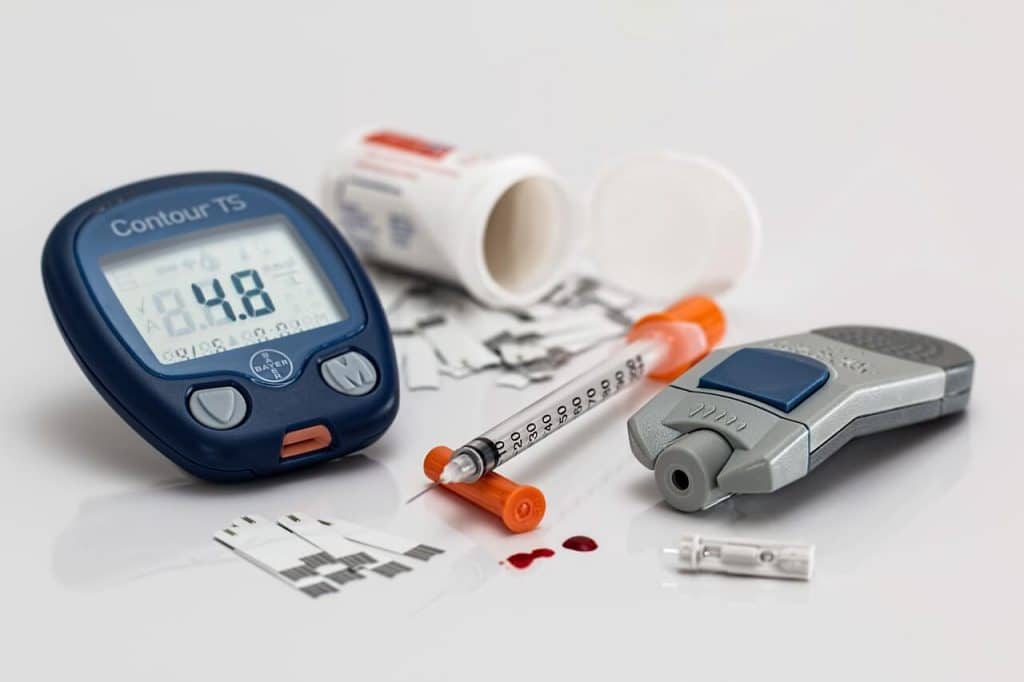
Although there are many factors that can come in to play with the following diseases, evidence shows that sugar can be a big contributor in aggravating the disease or even causing it.
Diseases Caused by Sugar:
Gastrointestinal issues
Increased sugar intake has been linked to the development of many diseases and aging factors.
Within the intestine, increased ingestion of processed sugar creates an acidic environment from which disease progression can begin. In fact, sugar can cause indigestion, malabsorption of nutrients in people with digestive issues and an increased risk of Crohn’s disease and ulcerative colitis (7,8,9,10).
Diabetes
Insulin is the hormone secreted by the pancreas which regulates blood glucose. Specifically, when blood glucose levels rise, insulin is produced in order to clear the sugar from the blood and allows the sugar to enter the cells where it will be used for energy production.
However, if you eat too much sugar, this decreases cells’ sensitivity to insulin. This means that insulin knocks on the door of the cell, but the cell does not open to let it in. If this continues over a long period of time, diabetes is an inevitable outcome (11,12,13).
Cardiovascular Disease
Although once assumed that saturated fats were the cause of cardiovascular problems, sugar is actually the bigger culprit. It can significantly increase total cholesterol and triglyceride levels and can decrease “good” cholesterol levels (14, 15, 16, 17).
Sugar also contributes to the development of atherosclerosis and cardiovascular disease (18, 19).
Cancer
In addition to causing GI issues, diabetes and cardiovascular disease, sugar is very much connected to the development of cancer.
Examples of cancers caused by sugar intake are breast, ovaries, prostate, rectum, pancreas, biliary tract, lung, gall bladder and stomach (20, 21, 22 23, 24, 25, 26).
Is the complete avoidance of sugar the answer?
It depends. There are healthy sources of natural sugars that are fine to include in your diet on occasion….ON OCCASION being the keyword here. If you are able to make a treat using honey every once in a while and be satisfied with that, wonderful! However, some people have a sort of addiction to sugar that makes them not able to even have a little bit of sugar without it triggering a binge. These people feel the need to have a sweet treat every day (even if it is natural). If this sounds like you, then you may want to avoid sugar altogether.
Tips for boosting nutrient density without eating “bad” sugar
Avoid the processed stuff. The best place to start is to avoid all processed sugars and processed foods that can contain hidden sugars. For example, tomato sauce that you buy at the supermarket can contain sugar.
Use real, whole foods. Try to make all foods from scratch using real, whole foods. This change alone will exponentially decrease your exposure to sugar.
Eat fruit. There is some debate as to whether too much fructose in the diet can be detrimental to one’s health, however, the benefits of eating fruit far outweigh the risks associated with not eating it. Fruit consumption should be your main source of sugar. In order to maintain healthier blood glucose levels throughout the day, mix a fruit with a protein or vegetable source. Some examples are an apple with some almonds or a smoothie made with blueberries and spinach.
Follow a Paleo protocol. The Paleo diet can decrease markers of inflammation and naturally lower your processed food consumption. Adapting a Paleo lifestyle can help you to naturally avoid sugar that can cause disease.
Having Occasional Treats
Remember that you are human. It is completely natural to have the occasional treat, as long as your definition of occasional is not every other day. Having a bit of sugar once in a while is not going to cause health issues. Making your own homemade sweets with healthy ingredients every once in a while is a much better option than store-bought processed sweets. It is the choices you make daily that have the highest impact on your health. Therefore, try to think of ways to add nutrient density to every bite you choose to eat instead of reaching for a store-bought granola bar. Make your own nut bars and choose what goes into them instead.
If you choose real, whole foods on a daily basis, make more of an effort to cook at home and buy organic foods from companies that are environment-friendly and care about the ingredients they use, you are on the right track to reducing your sugar intake and taking your health into your own hands.
How Can I Stop Sugar Cravings?
There are many useful tips to make sugar cravings go away.
If you’re feeling the need to eat something sweet often, the tips in this guide will help you gain control over your cravings.
To get your FREE guide 6 Easy Tips to Quit Sugar click here.
References:
- https://www.ncbi.nlm.nih.gov/pubmed/27448745
- https://www.ncbi.nlm.nih.gov/pubmed/22023100
- https://www.ncbi.nlm.nih.gov/pubmed/22810099
- https://www.ncbi.nlm.nih.gov/pubmed/15864352/
- https://www.ncbi.nlm.nih.gov/pubmed/27625763
- https://www.ncbi.nlm.nih.gov/pubmed/4748178.
- Dufty, William. Sugar Blues. (New York:Warner Books, 1975).
- Yudkin, J. Sweet and Dangerous.(New York:Bantam Books,1974) 129
- https://www.ncbi.nlm.nih.gov/pubmed/7489774
- https://www.ncbi.nlm.nih.gov/pubmed/1313310
- Beck, Nielsen H., Pedersen O., and Schwartz S. Effects of Diet on the Cellular Insulin Binding and the Insulin Sensitivity in Young Healthy Subjects. Diabetes. 1978;15:289_296 .
- Sucrose Induces Diabetes in Cat. Federal Protocol. 1974;6(97). Diabetes
- Reiser, S., et al. Effects of Sugars on Indices on Glucose Tolerance in Humans. American Journal of Clinical Nutrition. 1986;43:151-159.
- Scanto, S. and Yudkin, J. The Effect of Dietary Sucrose on Blood Lipids, Serum Insulin, Platelet Adhesiveness and Body Weight in Human Volunteers, Postgraduate Medicine Journal. 1969;45:602_607.
- Albrink, M. and Ullrich I. H. Interaction of Dietary Sucrose and Fiber on Serum Lipids in Healthy Young Men Fed High Carbohydrate Diets. American Journal of Clinical Nutrition. 1986;43:419-428. Pamplona, R., et al. Mechanisms of Glycation in Atherogenesis. Med Hypotheses. Mar 1993;40(3):174-81.
- Reiser, S. Effects of Dietary Sugars on Metabolic Risk Factors Associated with Heart Disease. Nutritional Health. 1985;203_216.
- Lewis, G. F. and Steiner, G. Acute Effects of Insulin in the Control of Vldl Production in Humans. Implications for The insulin-resistant State. Diabetes Care. 1996 Apr;19(4):390-3 R. Pamplona, M. .J., et al. Mechanisms of Glycation in Atherogenesis. Medical Hypotheses. 1990;40:174-181.
- Pamplona, R., et al. Mechanisms of Glycation in Atherogenesis. Medical Hypotheses . 1990:00:00 174_181.
- Vaccaro O., Ruth, K. J. and Stamler J. Relationship of Postload Plasma Glucose to Mortality with 19 yr Follow up. Diabetes Care. Oct 15,1992;10:328_334. Tominaga, M., et al, Impaired Glucose Tolerance Is a Risk Factor for Cardiovascular Disease, but Not Fasting Glucose. Diabetes Care. 1999:2(6):920-924.
- Takahashi, E., Tohoku University School of Medicine, Wholistic Health Digest. October 1982:41:00
- Quillin, Patrick, Cancer’s Sweet Tooth, Nutrition Science News. Ap 2000 Rothkopf, M.. Nutrition. July/Aug 1990;6(4).
- Michaud, D. Dietary Sugar, Glycemic Load, and Pancreatic Cancer Risk in a Prospective Study. J Natl Cancer Inst. Sep 4, 2002 ;94(17):1293-300.
- Moerman, C. J., et al. Dietary Sugar Intake in the Etiology of Biliary Tract Cancer. International Journal of Epidemiology. Ap 1993.2(2):207-214.
- The Edell Health Letter. Sept 1991;7:1.
- De Stefani, E.”Dietary Sugar and Lung Cancer: a Case control Study in Uruguay.” Nutrition and Cancer. 1998;31(2):132_7.
- Cornee, J., et al. A Case-control Study of Gastric Cancer and Nutritional Factors in Marseille, France. European Journal of Epidemiology 11 (1995):55-65.


